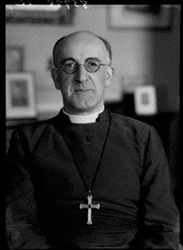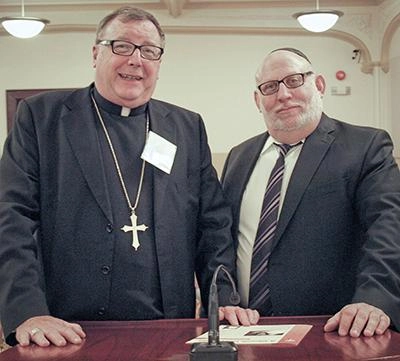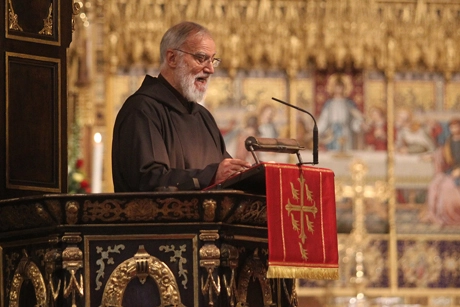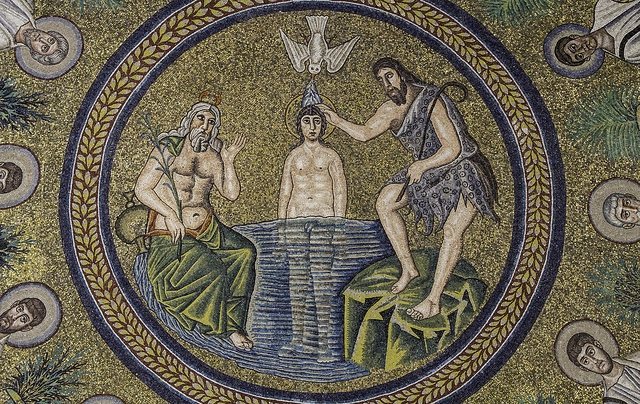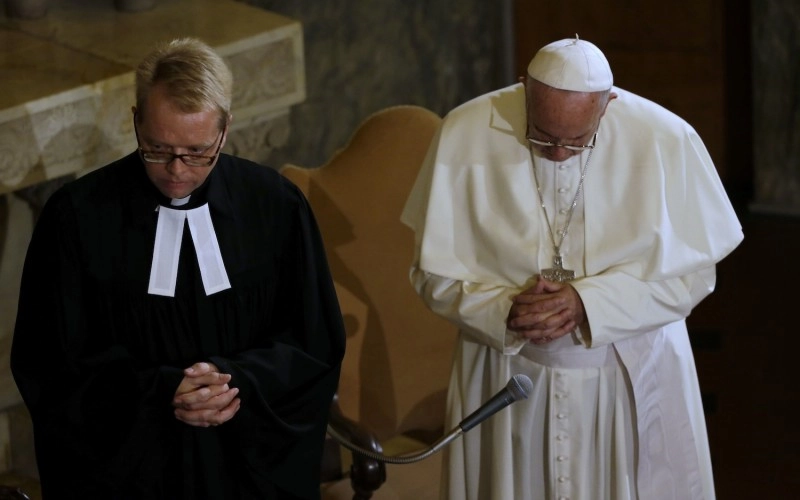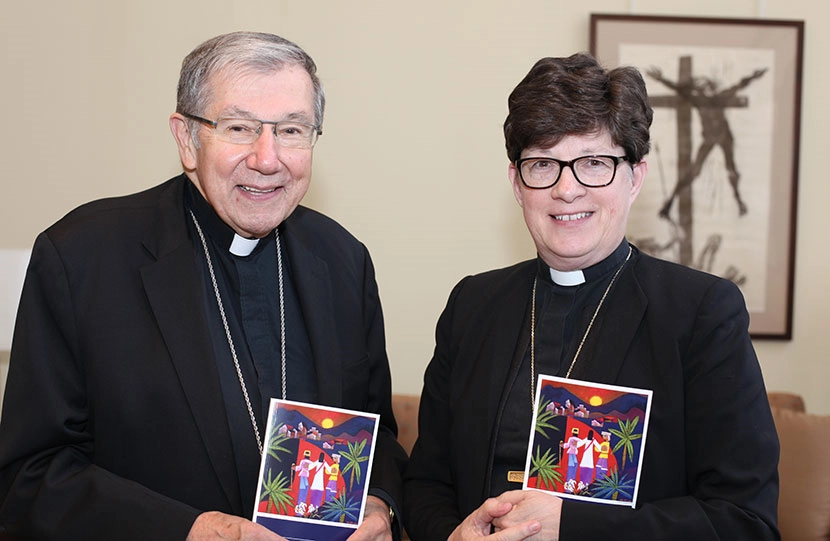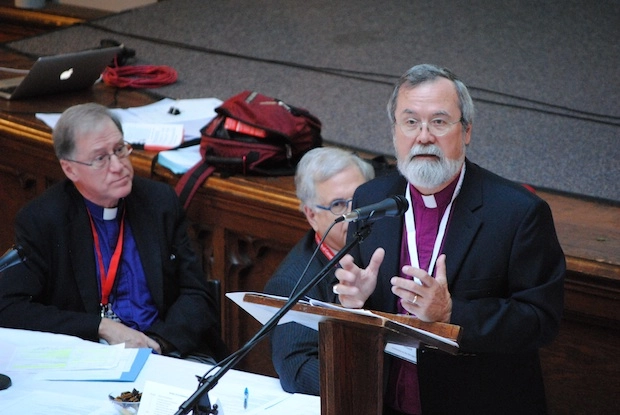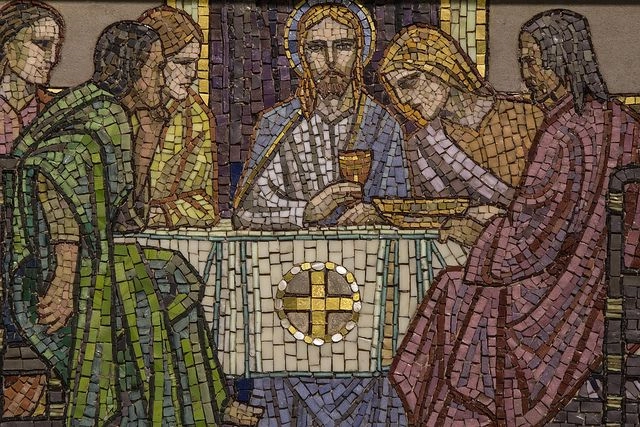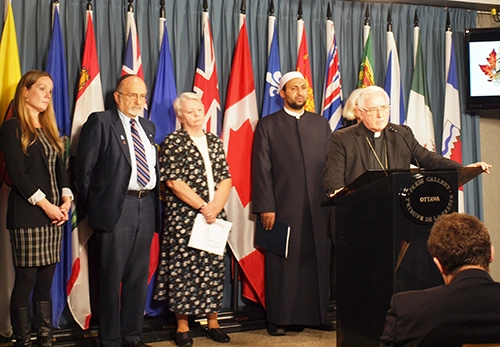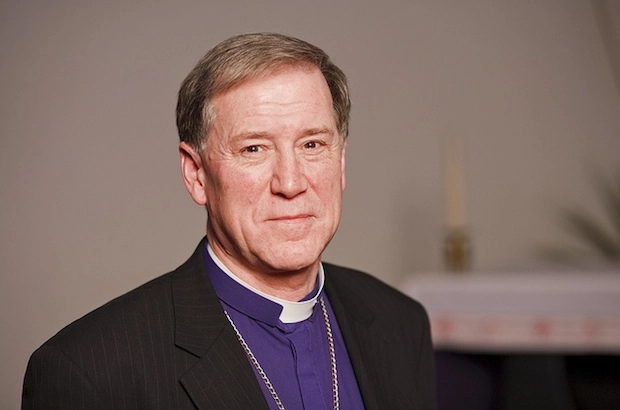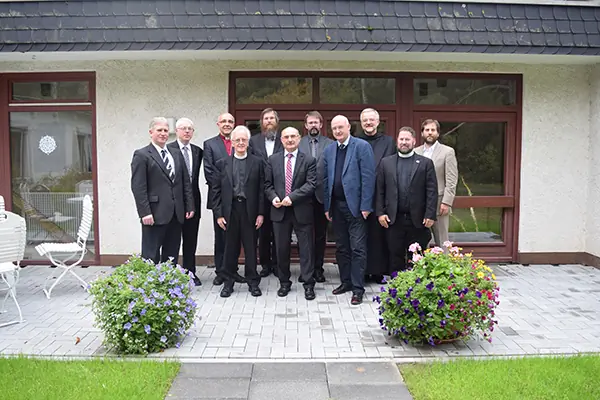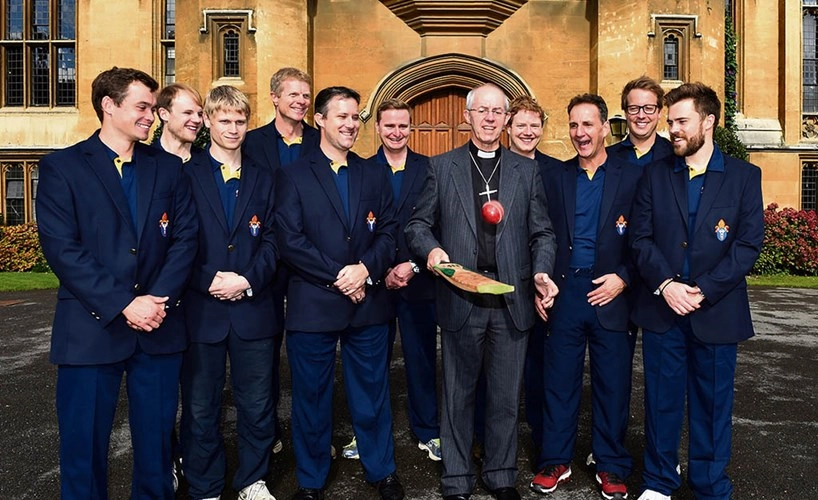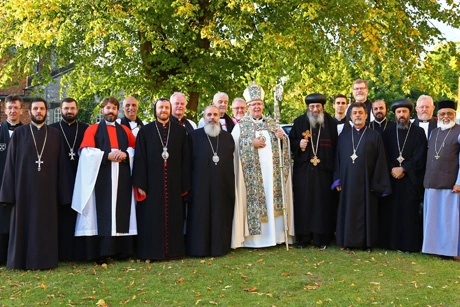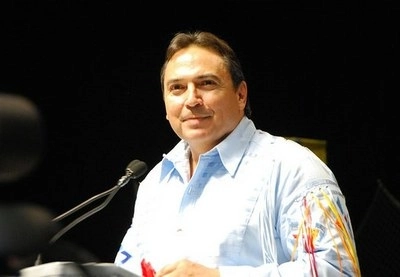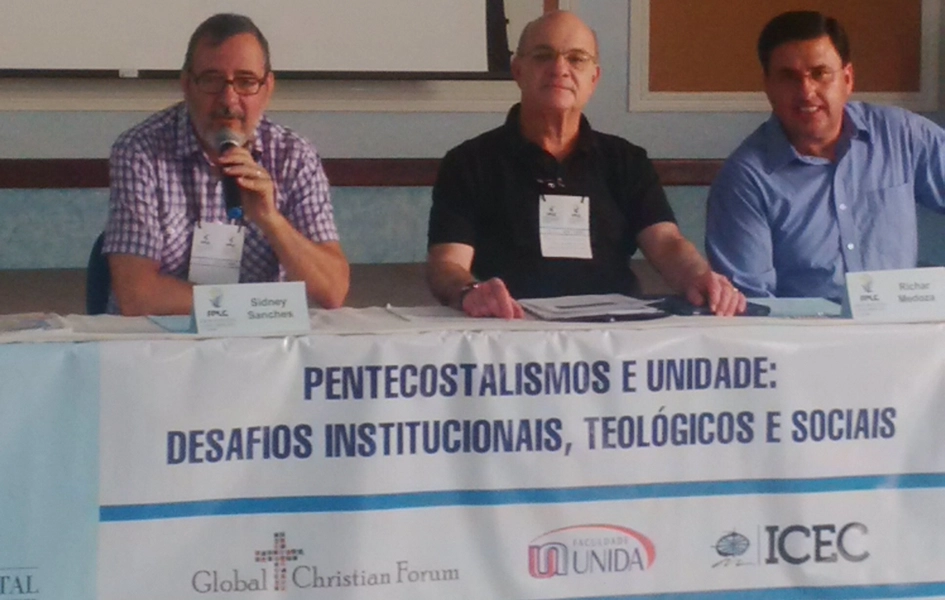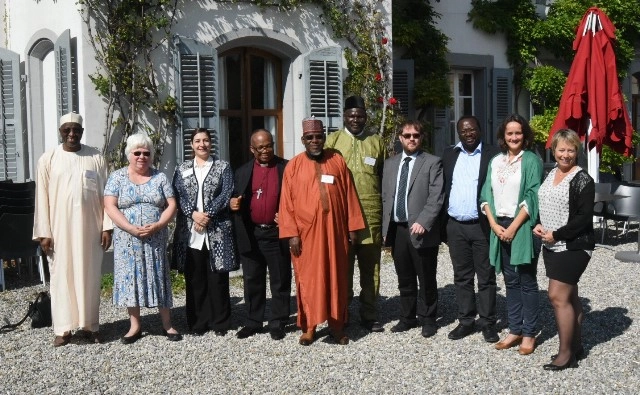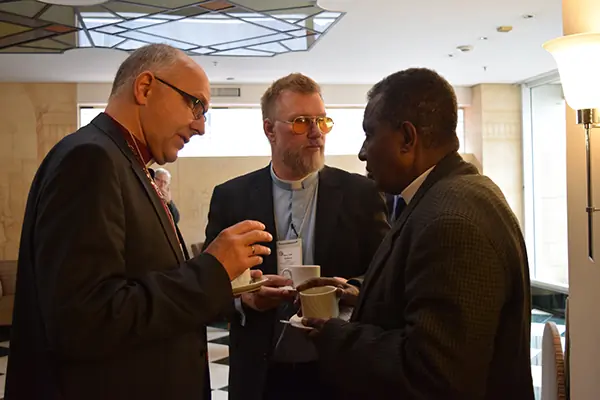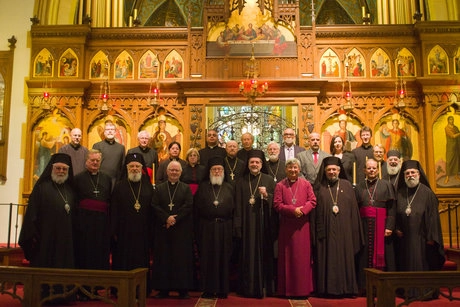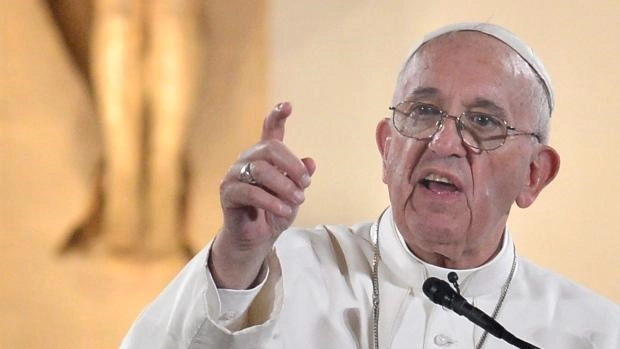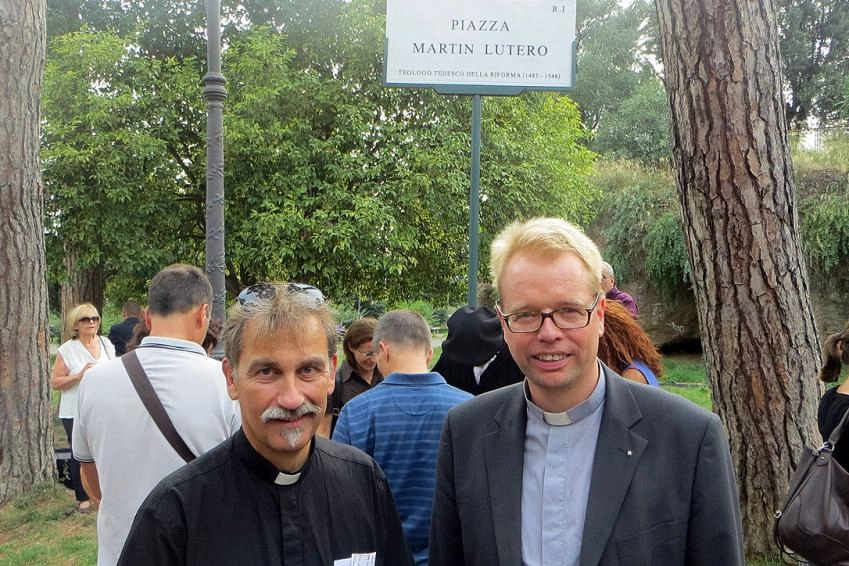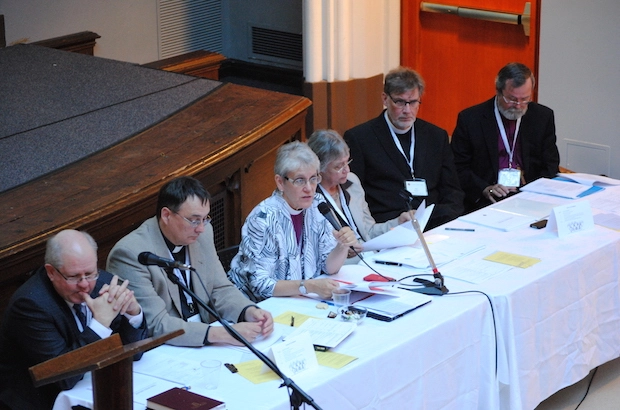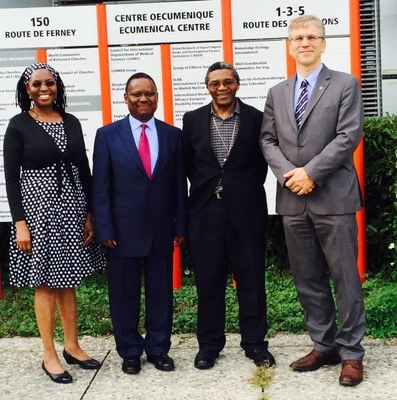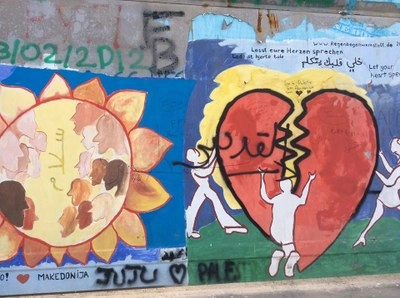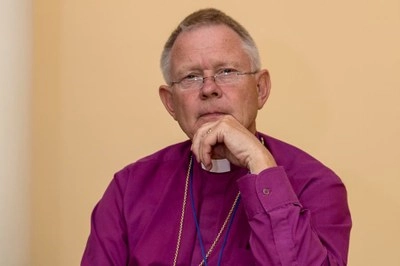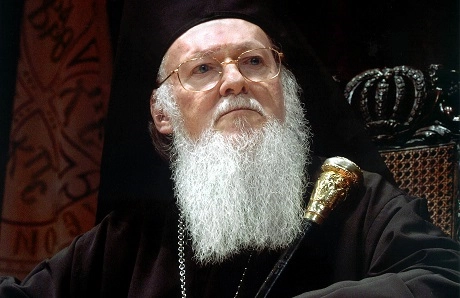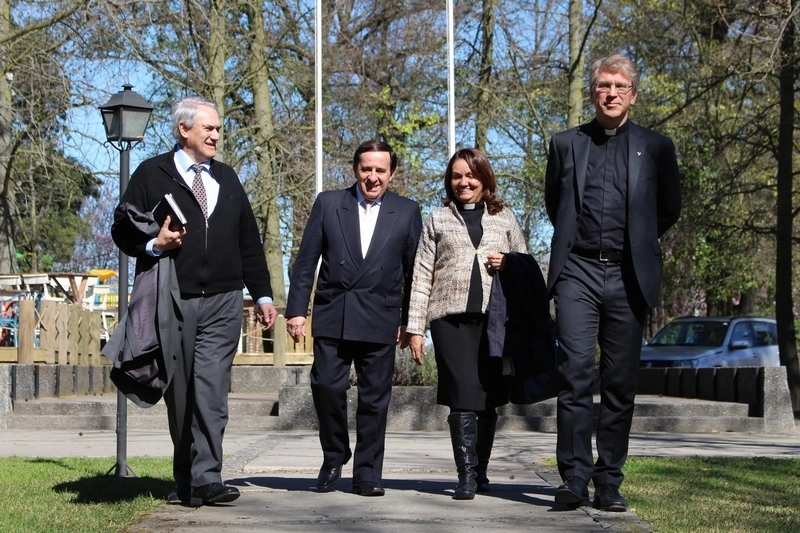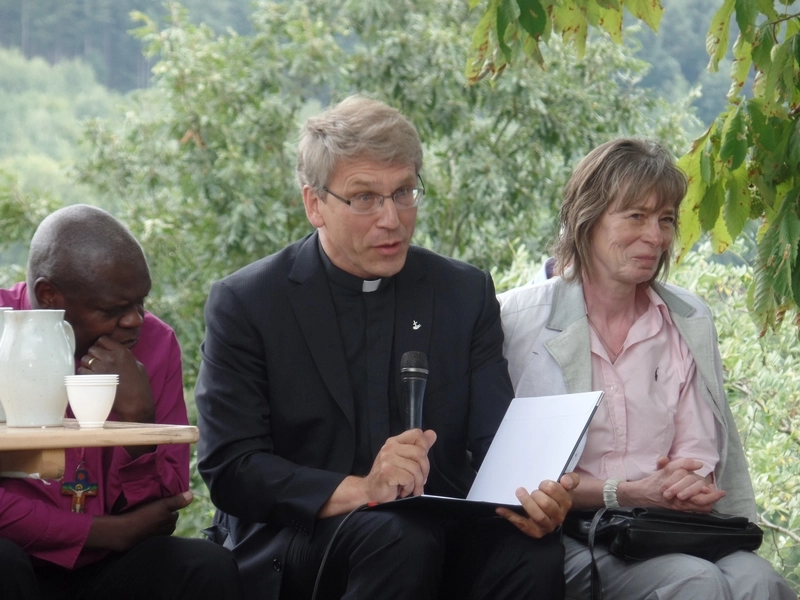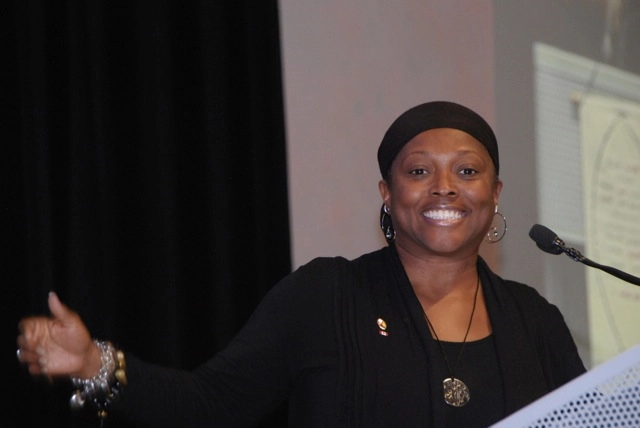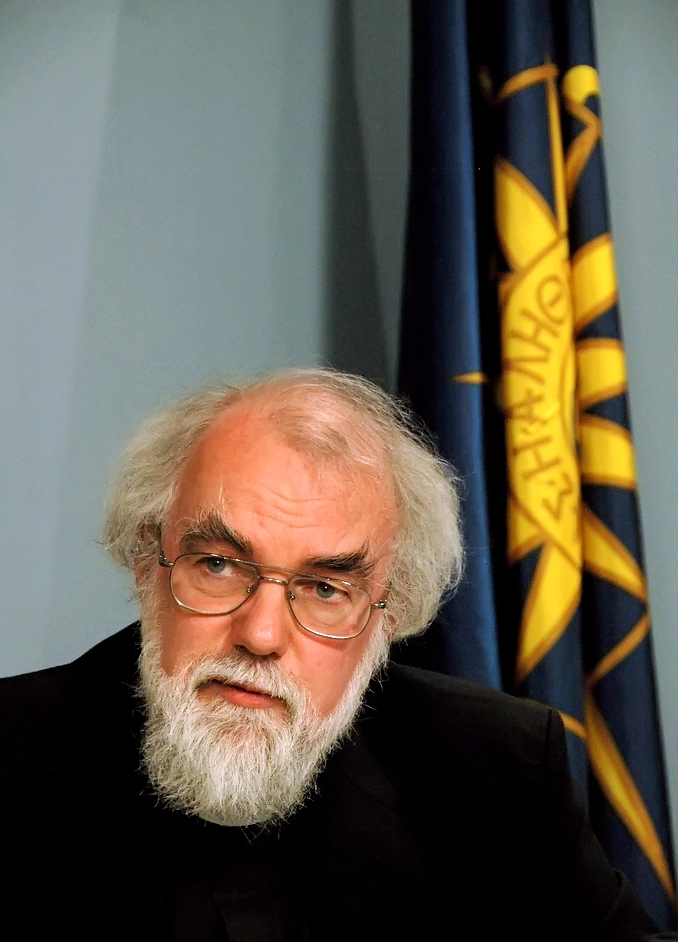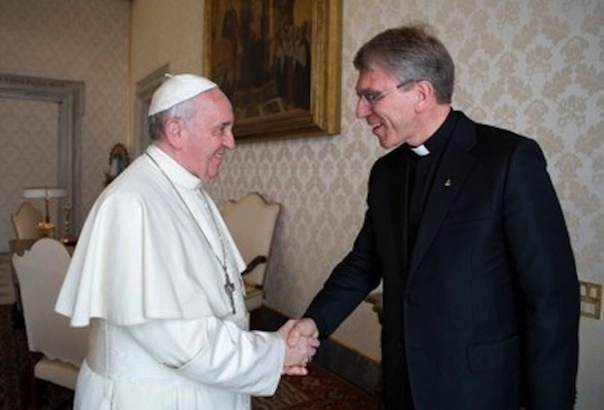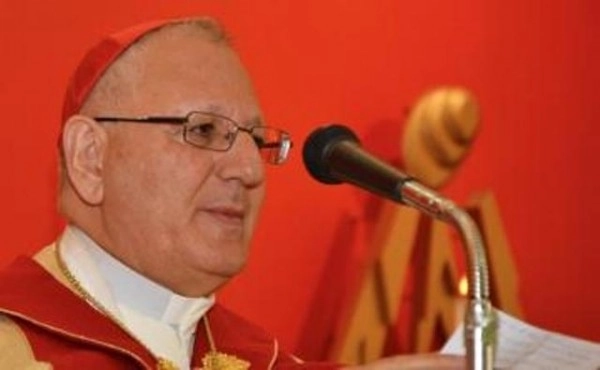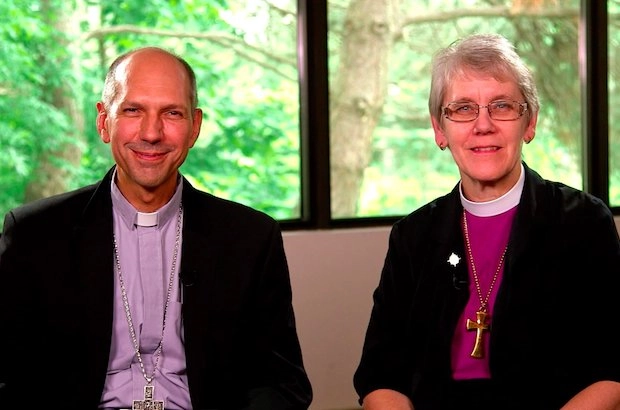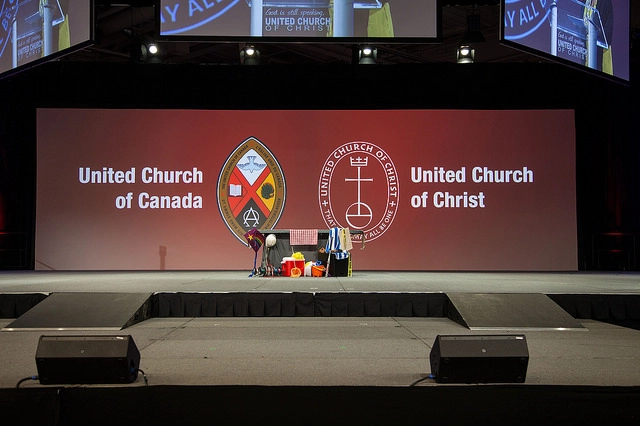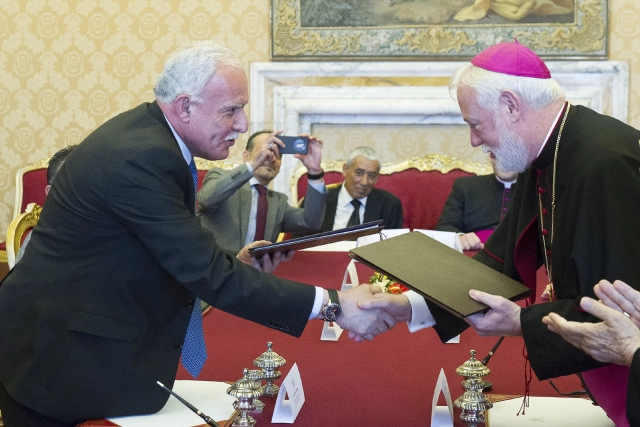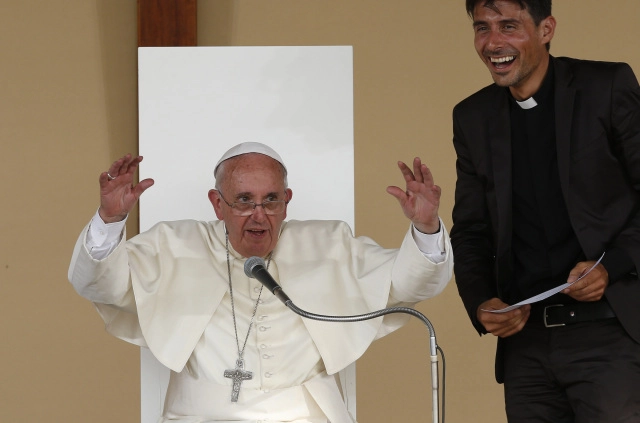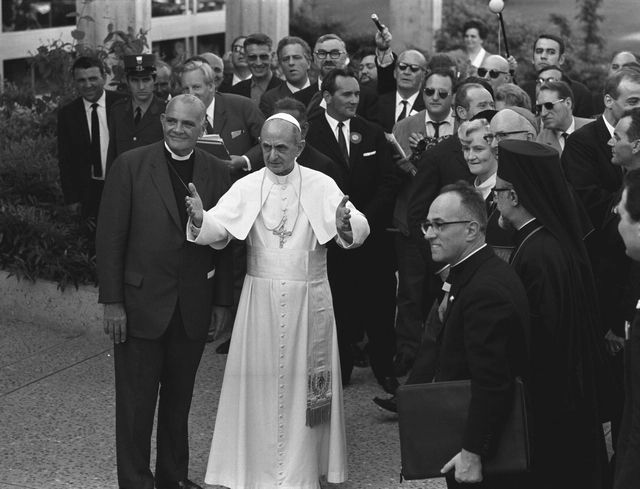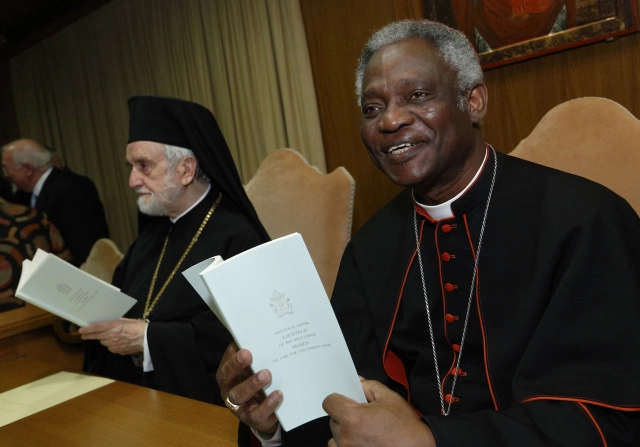- Français
- |
- Booklist
- |
- Week of Prayer
- |
- Links
- Areopagus - a forum for dialogue
- Academic journals
- Acronyms
- Bible tools
- Bibliographies
- Booksellers and publishers
- Churches
- Canadian church headquarters
- Directory of Saskatchewan churches
- Retreat centres
- Saskatchewan church and non-profit agencies
- Ecumenism.net Denominational links
- Anabaptist & Mennonite
- Anglican
- Baptist
- Evangelical
- Independent episcopal
- Lutheran
- Methodist, Wesleyan, and Holiness
- Miscellaneous
- Mormon
- Orthodox (Eastern & Oriental)
- Para-church ministries
- Pentecostal / charismatic
- Presbyterian & Reformed
- Quaker (Society of Friends)
- Roman & Eastern Catholic
- United and uniting
- Documents of Ecumenical Interest
- Ecumenical agencies
- Ecumenical Booklist
- Ecumenical Dialogues
- Glossary
- Human rights
- Inter-religious links
- Justice & peace
- Lectionaries
- Religious news services
- Resource pages
- Search Ecumenism.Net
- |
- Documents
- Ancient & Medieval texts
- Ecumenical Dialogues
- Interreligious
- Anabaptist & Mennonite
- Anglican
- Evangelical
- Lutheran
- Orthodox
- Reformed & Presbyterian
- Roman & Eastern Catholic
- United & Uniting
- Miscellaneous churches
- Canadian Council of Churches (CCC)
- Conference of European Churches (CEC)
- Interchurch Families International Network (IFIN)
- National Council of Churches in Australia (NCCA)
- Lausanne Committee for World Evangelism (LCWE)
- World Council of Churches (WCC)
- Other ecumenical documents
Church traditions
Documents from ecumenical agencies
- |
- Dialogues
- Adventist-Reformed
- African Instituted Churches-Reformed
- Anglican-Lutheran
- Anglican-Orthodox
- Anglican-Reformed
- Anglican-Roman Catholic
- Anglican-United/Uniting
- Baptist-Reformed
- Disciples of Christ-Reformed
- Disciples of Christ-Roman Catholic
- Evangelical-Roman Catholic
- Lutheran-Mennonite
- Lutheran-Mennonite-Roman Catholic
- Lutheran-Reformed
- Lutheran-Roman Catholic
- Mennonite-Reformed
- Mennonite-Roman Catholic
- Methodist-Reformed
- Methodist-Roman Catholic
- Oriental Orthodox-Reformed
- Orthodox-Reformed
- Orthodox-Roman Catholic
- Pentecostal-Reformed
- Prague Consultations
- REC-WARC Consultations
- Roman Catholic-Lutheran-Reformed
- Roman Catholic-Reformed
- Roman Catholic-United Church of Canada
- |
- Quick links
- Canadian Centre for Ecumenism
- Canadian Council of Churches
- Ecumenical Shared Ministries
- Ecumenism in Canada
- Interchurch Families International Network
- International Anglican-Roman Catholic Commission for Unity and Mission
- Kairos: Canadian Ecumenical Justice Initiatives
- North American Academy of Ecumenists
- Prairie Centre for Ecumenism
- Réseau œcuménique justice et paix
- Week of Prayer for Christian Unity
- Women's Interchurch Council of Canada
- World Council of Churches
- |
- Archives
- |
- About us
Archive for author: Ecumenism in Canada editor
Archive de l'auteur : Ecumenism in Canada editor
![]() RSS feed for Ecumenism in Canada editor
RSS feed for Ecumenism in Canada editor
A social media campaign to help educate Canadians about Muslim women has its roots in Saskatoon.
The Ahmadiyya Muslim Jama’at launched a national campaign this week based around the Twitter hashtag #JeSuisHijabi.
“After the Paris attacks … there’s a lot of misconceptions in Canada and the U.S.,” 17-year-old Naiela Anwar explained. “We thought it was important that we gave our point of view, and show that not all Muslims are like that.
“We condemn greatly the terror attacks that took place. That is not the true Islam.”
… Read more » … lire la suite »

 Permanent link: ecumenism.net/?p=8911
Permanent link: ecumenism.net/?p=8911
Categories: News • In this article: Islam, Muslim, Saskatoon

 Lien permanente : ecumenism.net/?p=8911
Lien permanente : ecumenism.net/?p=8911
Catégorie : News • Dans cet article : Islam, Muslim, Saskatoon
On December 2nd, 55 years ago, Pope John XXIII had a private audience with the Archbishop of Canterbury Geoffrey Fisher, the first time that Anglican and Catholic leaders had met together since the Reformation.
Following their historic encounter, the archbishop met with Cardinal Augustin Bea, head of the newly established Secretariat for Christian Unity, leading to the invitation of Anglican observers to the Second Vatican Council. The meeting also paved the way for the first official encounter between their successors, Pope Paul VI and Archbishop Michael Ramsey in March 1966 and the establishment of an Anglican Centre here in Rome.
The current director of that Centre and representative of the Archbishop of Canterbury to the Vatican is New Zealand Archbishop David Moxon. He talked to Philippa Hitchen about the upcoming 50th anniversary and about the significance of Archbishop Fisher’s visit to the Vatican in December 1960 ….
… Read more » … lire la suite »

 Permanent link: ecumenism.net/?p=9188
Permanent link: ecumenism.net/?p=9188
Categories: Vatican News • In this article: Anglican, Archbishop of Canterbury, Catholic, pope

 Lien permanente : ecumenism.net/?p=9188
Lien permanente : ecumenism.net/?p=9188
Catégorie : Vatican News • Dans cet article : Anglican, Archbishop of Canterbury, Catholic, pope
Today, the Canadian Conference of Catholic Bishops (CCCB) and the Canadian Rabbinic Caucus (CRC) convened the first national, bilateral dialogue between Catholics and Jews in Canada.
The organizations launched this initiative as part of a joint celebration of the 50th anniversary of Nostra Aetate, the Declaration issued by the Second Vatican Council which rejected antisemitism and underscored the importance of the Jewish roots of Christianity. The first dialogue session involved a combination of clergy and scholars, with six-person delegations from each faith community. Themes addressed included the substantial role of Nostra Aetate in transforming Catholic perceptions of the Jewish community, the deep significance of the State of Israel to the Jewish people, and the importance of acknowledging painful history while embracing mutual respect and working together to build a common future.
… Read more » … lire la suite »

 Permanent link: ecumenism.net/?p=8908
Permanent link: ecumenism.net/?p=8908
Categories: News • In this article: Canada, Canadian Rabbinic Caucus, Catholic, CCCB, Jewish-Christian relations, Judaism

 Lien permanente : ecumenism.net/?p=8908
Lien permanente : ecumenism.net/?p=8908
Catégorie : News • Dans cet article : Canada, Canadian Rabbinic Caucus, Catholic, CCCB, Jewish-Christian relations, Judaism
Few prophetic oracles in the Old Testament can be dated so precisely as that of Haggai, which we have just heard in the first reading. We can place it between August and December in the year 520 BC. The exiles, after the deportation to Babylon, have come back to rebuild the Temple in Jerusalem. They set to work, but soon grow discouraged, each preferring to work on his own house instead. Into this situation comes the prophet Haggai, sent by God with the message we have heard.
The Word of God, once it is proclaimed, remains forever alive; it transcends situations and centuries, each time casting new light. The situation deplored by the prophet is renewed in history each time we are so absorbed in the problems and interests of our own parish, diocese, community – and even of our particular Christian denomination – that we lose sight of the one house of God, which is the Church.
The prophecy of Haggai begins with a reproof, but ends, as we heard, with an exhortation and a grandiose promise: “Go up into the hills, fetch timber and rebuild the House, and I shall take pleasure in it and manifest my glory there” – says the Lord”.
One circumstance makes this point particularly relevant. The Christian world is preparing to celebrate the fifth centenary of the Protestant Reformation. It is vital for the whole Church that this opportunity is not wasted by people remaining prisoners of the past, trying to establish each other’s rights and wrongs. Rather, let us take a qualitative leap forward, like what happens when the sluice gates of a river or a canal enable ships to continue to navigate at a higher water level.
… Read more » … lire la suite »

 Permanent link: ecumenism.net/?p=9185
Permanent link: ecumenism.net/?p=9185
Categories: News, Resources • In this article: Anglican, Catholic, Church of England, Raniero Cantalamessa, Sermon

 Lien permanente : ecumenism.net/?p=9185
Lien permanente : ecumenism.net/?p=9185
Catégorie : News, Resources • Dans cet article : Anglican, Catholic, Church of England, Raniero Cantalamessa, Sermon
In 1975, five major Christian churches in Canada reached an agreement recognizing the validity of each other’s baptisms. Forty years later, the mutual recognition of baptism by the Presbyterian, Lutheran, United, Roman Catholic and Anglican (PLURA) churches stands as a historic milestone in the ongoing ecumenical movement.
A news release from the Canadian Conference of Catholic Bishops (CCCB) on September 11, 1975 noted that the agreement followed an ecumenical study of baptism by the Joint Working Group of the Canadian Council of Churches and the CCCB. Responding to the report, each church agreed that “baptism would be recognized when conferred according to the norms of the churches, with flowing water, by pouring, sprinkling or immersion, accompanied by the Trinitarian formula [i.e. in the name of the Father, Son, and Holy Spirit].”
Archdeacon Bruce Myers, ecumenical and interfaith coordinator for the Anglican Church of Canada, underscored the role of mutual recognition of baptism in bringing members of different churches closer together.
“When each of us is baptized, it’s always into a particular church, a local community of faith that exists within a denomination,” Myers said. “But also you’re being baptized into the one holy catholic and apostolic church that is universal.”
… Read more » … lire la suite »

 Permanent link: ecumenism.net/?p=8854
Permanent link: ecumenism.net/?p=8854
Categories: News • In this article: baptism, Canada, Christian unity, ecumenism

 Lien permanente : ecumenism.net/?p=8854
Lien permanente : ecumenism.net/?p=8854
Catégorie : News • Dans cet article : baptism, Canada, Christian unity, ecumenism
Yesterday afternoon the Holy Father met with the evangelical Lutheran community of Rome in the Christuskirche, where he was warmly welcomed by Pastor Jeans-Martin Kruse, who in his welcome discourse also recalled the visits to the same [church] by St. John Paul II and Pope Benedict XVI.
Francis then answered questions from three members of the community, a child and two women, and after the vespers prayer, with the reading from the Gospel of St. Matthew (25, 31, 46), he pronounced an off-the-cuff homily in which he emphasised that Lutherans and Catholics must ask mutual forgiveness for persecutions against each other and for the scandal of divisions.
The first question to which the Pope responded was from a child who wanted to know what he liked the most about being the Pope. “The thing I like best, sincerely, is being a pastor”, Francis replied. “I like being the Pope in the style of a parish priest. Service: I like it, in the sense that I feel good, when I visit the sick, when I speak with people who are desperate or sad. I like going to prisons … to speak with detainees… Every time I enter a prison I ask myself, ‘Why them and not me?’. And I am aware of the salvation of Jesus Christ, His love for me. Because He saved me. I am no less a sinner than they are, but the Lord took me by the hand. And when I go into a prison I am happy. Being a Pope is being a bishop, being a pastor. If a Pope is not also a bishop, if a Pope is not also a pastor, he may be a very intelligent person, very important and hold great influence in society, but I think that inside he will not be happy”.
… Read more » … lire la suite »

 Permanent link: ecumenism.net/?p=8862
Permanent link: ecumenism.net/?p=8862
Categories: Vatican News • In this article: Catholic, ecumenism, Lutheran, Pope Francis, sacramental sharing

 Lien permanente : ecumenism.net/?p=8862
Lien permanente : ecumenism.net/?p=8862
Catégorie : Vatican News • Dans cet article : Catholic, ecumenism, Lutheran, Pope Francis, sacramental sharing
An historic consultation of church leaders, drawn from 56 nations, to focus on intensifying ‘discrimination, persecution and violence’ against Christian communities around the world has called on churches globally to pray, support and be in solidarity with those suffering persecution due to their faith. In a two pronged response the leaders: offered “repentance” for times when churches had “persecuted each other and other religious communities in history”; and, urged churches “to urgently strengthen the solidarity of all Christians” in the face of discrimination, persecution and martyrdom in the 21st century. In a greeting from the Vatican, Pope Francis said, “I think with great sadness of the escalating discrimination, and persecution against Christians in the Middle East, Africa and Asia and elsewhere throughout the world. “In various parts of the world, the witness to Christ, even to the shedding of blood, has become a shared experience of Catholics, Orthodox, Anglicans, Protestants, Evangelicals and Pentecostals,” he said. The consultation also called on governments to “respect and protect the freedom of religion and belief of all people as a fundamental human right.”
… Read more » … lire la suite »

 Permanent link: ecumenism.net/?p=8857
Permanent link: ecumenism.net/?p=8857
Categories: Communiqué, News • In this article: Global Christian Forum, persecution, religious freedom

 Lien permanente : ecumenism.net/?p=8857
Lien permanente : ecumenism.net/?p=8857
Catégorie : Communiqué, News • Dans cet article : Global Christian Forum, persecution, religious freedom
Drawing on 50 years of national and international dialogue, Lutherans and Catholics together have issued the “Declaration on the Way: Church, Ministry and Eucharist,” a unique ecumenical document that marks a pathway toward greater visible unity between Catholics and Lutherans. The October 30 release of the document comes on the eve of the anniversary of Martin Luther’s posting the 95 Theses, which sparked the Protestant Reformation.
“Pope Francis in his recent visit to the United States emphasized again and again the need for and importance of dialogue. This Declaration on the Way represents in concrete form an opportunity for Lutherans and Catholics to join together now in a unifying manner on a way finally to full communion,” said Bishop Denis J. Madden, auxiliary bishop of the Archdiocese of Baltimore, Catholic co-chair of the task force creating the declaration.
“Five hundred years ago wars were fought over the very issues about which Lutherans and Roman Catholics have now achieved consensus,” said ELCA Presiding Bishop Elizabeth A. Eaton. “Church, ministry and Eucharist have been areas of disagreement and even separation between our two churches, and we still have work to do both theologically and pastorally as we examine the questions. The declaration is so exciting because it shows us 32 important points where already we can say there are not church-dividing issues between us, and it gives us both hope and direction for the future,” she said.
… Read more » … lire la suite »

 Permanent link: ecumenism.net/?p=8839
Permanent link: ecumenism.net/?p=8839
Categories: Documents, News • In this article: Catholic, dialogue, Evangelical Lutheran Church in America, statements, USCCB

 Lien permanente : ecumenism.net/?p=8839
Lien permanente : ecumenism.net/?p=8839
Catégorie : Documents, News • Dans cet article : Catholic, dialogue, Evangelical Lutheran Church in America, statements, USCCB
At their autumn meeting in Niagara Falls, Ont., members of the Anglican Church of Canada’s House of Bishops agreed to convene a special meeting from February 23-26 to discuss the report of the Commission on the Marriage Canon.
In a communiqué released October 26, the bishops said this meeting would “pay particular attention to the theology of marriage, the nature of episcopacy, and the synod’s legislative process” and “wrestle with how to honour our roles as guardians of the Church’s faith and discipline and signs of unity both locally and universally.”
The question of legislative process — how General Synod 2016 will approach the divisive vote on whether or not to allow same-sex marriage — has raised some anxiety among bishops, and was brought up in the communiqué.
“We are concerned that parliamentary procedure may not be the most helpful way to discern the mind of the Church, or of the Spirit, in this matter,” it stated. “We would ask those in charge of designing the process whereby the draft resolution comes to the floor…to consider ways in which trust and understanding can be deepened and promoted.”
… Read more » … lire la suite »

 Permanent link: ecumenism.net/?p=8830
Permanent link: ecumenism.net/?p=8830
Categories: Anglican Journal, Communiqué • In this article: Anglican Church of Canada, human sexuality, marriage

 Lien permanente : ecumenism.net/?p=8830
Lien permanente : ecumenism.net/?p=8830
Catégorie : Anglican Journal, Communiqué • Dans cet article : Anglican Church of Canada, human sexuality, marriage
When the Anglican House of Bishops met in Niagara Falls, Ont., in mid-October, one of the first items on the agenda was the policy of authorized lay ministry adopted by the Evangelical Lutheran Church in Canada (ELCIC) during its National Convention this summer.
Sometimes called “lay presidency,” authorized lay ministry is a dispensation by which—in extraordinary circumstances—lay people can preside over services of the eucharist. While it can hardly be considered part of standard Lutheran practice, the convention voted in July to allow it in heavily circumscribed circumstances.
In an interview with the Anglican Journal, ELCIC National Bishop Susan Johnson said that the measures were brought in to meet a serious need.
“We find ourselves with occasional situations where it’s difficult and/or impossible to provide regular word and sacrament ministry,” she said, explaining that after considering a number of possibilities, including greater use of reserve sacraments and local ordination, authorized lay ministry was seen to be the “best compromise.”
… Read more » … lire la suite »

 Permanent link: ecumenism.net/?p=8835
Permanent link: ecumenism.net/?p=8835
Categories: Anglican Journal • In this article: Anglican Church of Canada, bishops, eucharist, Evangelical Lutheran Church in Canada, full communion, lay presidency

 Lien permanente : ecumenism.net/?p=8835
Lien permanente : ecumenism.net/?p=8835
Catégorie : Anglican Journal • Dans cet article : Anglican Church of Canada, bishops, eucharist, Evangelical Lutheran Church in Canada, full communion, lay presidency
At a news conference today on Parliament Hill, the Canadian Conference of Catholic Bishops (CCCB) and The Evangelical Fellowship of Canada (EFC) released a joint statement on euthanasia and assisted suicide. The Declaration on Euthanasia and Assisted Suicide has been endorsed by over 30 Christian denominations together with over 20 Jewish and Muslim leaders from across Canada. In light of the Supreme Court of Canada’s ruling in R. v. Carter, the joint statement advocates for palliative care, respect for the dignity of the human person, human solidarity and psychological, spiritual and emotional support as the ethical and moral response in end-of-life care. The declaration states that “The recent Supreme Court of Canada decision has brought this issue to the forefront of public discussion and compels each of us as Canadians to reflect upon our personal and societal response to those who need our compassion and care.” Addressing the underlying importance of human dignity, the signatories affirm that “the sanctity of all human life, and the equal and inviolable dignity of every human being … is not exclusively a religious belief, although for us it has a significant religious meaning.” The signatories emphasize that “reverence for human life must be “the basis and reason for our compassion, responsibility and commitment in caring for all humans, our brothers and sisters, when they are suffering and in pain… to work to alleviate human suffering in every form but never by intentionally eliminating those who suffer.”
… Read more » … lire la suite »

 Permanent link: ecumenism.net/?p=8821
Permanent link: ecumenism.net/?p=8821
Categories: News • In this article: Canada, Christian, euthanasia, Jewish, Muslim, physician assisted suicide

 Lien permanente : ecumenism.net/?p=8821
Lien permanente : ecumenism.net/?p=8821
Catégorie : News • Dans cet article : Canada, Christian, euthanasia, Jewish, Muslim, physician assisted suicide
As bishops of The Anglican Church of Canada we are very grateful for the work of Canada’s Truth and Reconciliation Commission. Many of us have participated in the local, regional, and national gatherings hosted by Chief Justice Murray Sinclair, Dr. Marie Wilson, and Chief Wilton Littlechild. At the heart of every gathering was the opportunity for survivors of the Indian Residential Schools to tell their stories. We recognize the tremendous courage of all who shared their experiences of loneliness, humiliation and abuse. We commend the Commissioners for their steadfastness in listening to these stories and ensuring that they are never lost but preserved for all time in the National Center for Truth and Reconciliation in Winnipeg. Having heard the testimony of thousands of former students and the inter-generational impact of their experiences on their families, the Commissioners issued at the Closing Ceremonies for the TRC in Ottawa in June, 94 Calls to Action.
… Read more » … lire la suite »

 Permanent link: ecumenism.net/?p=8832
Permanent link: ecumenism.net/?p=8832
Categories: Anglican Journal, Communiqué • In this article: Anglican Church of Canada, bishops, Indigenous peoples, Truth and Reconciliation Commission

 Lien permanente : ecumenism.net/?p=8832
Lien permanente : ecumenism.net/?p=8832
Catégorie : Anglican Journal, Communiqué • Dans cet article : Anglican Church of Canada, bishops, Indigenous peoples, Truth and Reconciliation Commission
Anglican and Vatican cricketers met for the second time in Rome today in a match that saw the Vatican team win.
This morning’s match was played at the Capanelle Ground in Rome, coinciding with the conclusion of the Roman Catholic Church’s Synod on the Family.
St Peter’s XI reached 147 for 6, the Archbishop’s XI were all out for 105 runs.
Last autumn, in a historic first match between Vatican and Anglican sides, the Archbishop’s XI narrowly triumphed with five balls to spare in a memorable showdown at Kent County Cricket Club ground in Canterbury.
… Read more » … lire la suite »

 Permanent link: ecumenism.net/?p=10363
Permanent link: ecumenism.net/?p=10363
Categories: News • In this article: Anglican, Catholic

 Lien permanente : ecumenism.net/?p=10363
Lien permanente : ecumenism.net/?p=10363
Catégorie : News • Dans cet article : Anglican, Catholic
With growing concern about the plight of refugees, a Catholic parish in the City of Brockville, Ont., is coming together with two Anglican parishes to make a difference in the lives of three refugee families.
Agape Brockville is a joint sponsorship effort between St. Francis Xavier Catholic Church, St. Paul’s Anglican Church and St. Lawrence Anglican Church. Together, the three parishes are joining forces to prepare new homes for two families from Eritrea and one family from Syria.
“The plight of refugees has just been in the news for a long time,” said Michelle Bushnell, a parishioner at St. Francis Xavier and one of the founding members of Agape Brockville. “So we’ve been (increasingly) concerned about what we can do as Christians. Like in World War II, we go back and we admire so much that generation that sacrificed so much for each other and even in World War I… yet today, we have so many more people suffering.”
… Read more » … lire la suite »

 Permanent link: ecumenism.net/?p=10365
Permanent link: ecumenism.net/?p=10365
Categories: Catholic Register • In this article: Anglican, Catholic, refugees

 Lien permanente : ecumenism.net/?p=10365
Lien permanente : ecumenism.net/?p=10365
Catégorie : Catholic Register • Dans cet article : Anglican, Catholic, refugees
Hailing this past weekend the enactment of a full communion agreement between the United Church of Canada and the United Church of Christ in the U.S., Anglican Church of Canada primate, Archbishop Fred Hiltz, said he is eagerly looking forward to more ecumenical co-operation in the future.
The two churches, which had been exploring the idea of full communion since 2013, approved an agreement at their general synod and general council meetings this summer, but it was not officially enacted until a ceremony in Niagara Falls, Ont., October 17. Congregations of both churches marked the agreement with a special common prayer the following day.
According to the agreement, the full communion is marked by five key features: the common confession that “God is in Christ”; the mutual recognition of each other’s members and baptisms; the common celebration of the Lord’s supper/holy communion; the mutual recognition of each other’s ordained ministries; and a common commitment to the mission of each church.
… Read more » … lire la suite »

 Permanent link: ecumenism.net/?p=9646
Permanent link: ecumenism.net/?p=9646
Categories: Anglican Journal • In this article: full communion, United Church of Canada, United Church of Christ

 Lien permanente : ecumenism.net/?p=9646
Lien permanente : ecumenism.net/?p=9646
Catégorie : Anglican Journal • Dans cet article : full communion, United Church of Canada, United Church of Christ
Representatives of the Roman Catholic Church and the International Lutheran Council (ILC) met October 7-8 on the campus of the Lutheran Theological Seminary in Oberursel, Germany to initiate a three-year series of informal academic dialogues. Bishop Hans-Jörg Voigt, Chairman of the ILC, greeted the participants and wished them God’s blessing and good progress for their discussions.
The way had been paved for this consultation by a three-year series of talks carried out on a national level within Germany. Because of the positive developments achieved at that time, representatives of the Johann-Adam-Möhler Institute and the Lutheran Theological Seminary at Oberursel had appealed for discussions to continue on an international basis.
… Read more » … lire la suite »

 Permanent link: ecumenism.net/?p=13344
Permanent link: ecumenism.net/?p=13344
Categories: Communiqué, News • In this article: dialogue, Dicastery for Promoting Christian Unity, International Lutheran Council

 Lien permanente : ecumenism.net/?p=13344
Lien permanente : ecumenism.net/?p=13344
Catégorie : Communiqué, News • Dans cet article : dialogue, Dicastery for Promoting Christian Unity, International Lutheran Council
The Archbishop of Canterbury gave his blessing this week to the Archbishop’s XI, an English cricket team who are heading out to Rome this month to compete against a Vatican side.
The trip (21-26 October) follows a visit by the St Peter’s Club — made up of seminarians studying in Rome — to England last autumn. In a memorable meeting in Canterbury, the first-ever match between a Vatican side and an Anglican side ended in a narrow victory for the hosts in the last over (News, 26 September 2014), and raised money for the Global Freedom Network, a joint anti-trafficking initiative (News, 21 March 2014).
… Read more » … lire la suite »

 Permanent link: ecumenism.net/?p=10361
Permanent link: ecumenism.net/?p=10361
Categories: News • In this article: Anglican, Archbishop of Canterbury, Justin Welby

 Lien permanente : ecumenism.net/?p=10361
Lien permanente : ecumenism.net/?p=10361
Catégorie : News • Dans cet article : Anglican, Archbishop of Canterbury, Justin Welby
Historic agreements have been signed between Anglican and Oriental Orthodox Churches helping to heal the oldest continuing division within Christianity.
An Agreed Statement on Christology, published in North Wales this week by the Anglican-Oriental Orthodox International Commission (AOOIC), heals the centuries-old split between the Anglican Churches within the family of Chalcedonian Churches and the non-Chalcedonian Churches over the incarnation of Christ.
In addition, the Commission has made substantial progress on issues concerning the Holy Spirit, which have continued to keep the Churches apart over the centuries.
Leading clergy and theologians from both Christian traditions from around the world have been meeting at Gladstone’s Library in Hawarden to engage in theological dialogue, while at the same time forging deeper bonds of faith and mutual support.
His Eminence Metropolitan Bishoy from the Coptic Orthodox Church of Alexandria in Egypt and Co-Chair of the Commission said: “With this agreement we are able to heal the cause of the division between the two families of the churches worldwide which started at Chalcedon.
“There are other things which emerged during the long history since Chalcedon in the fifth century, so we have on our agenda many other topics including the position of the Holy Spirit, which we were able to sign a preliminary agreement on this subject also.
… Read more » … lire la suite »

 Permanent link: ecumenism.net/?p=8802
Permanent link: ecumenism.net/?p=8802
Categories: ACNS, Communiqué, Dialogue • In this article: Anglican Communion, Christology, dialogue, Oriental Orthodox

 Lien permanente : ecumenism.net/?p=8802
Lien permanente : ecumenism.net/?p=8802
Catégorie : ACNS, Communiqué, Dialogue • Dans cet article : Anglican Communion, Christology, dialogue, Oriental Orthodox
What do indigenous peoples expect of churches in light of the report of Canada’s Truth and Reconciliation Commission (TRC) on church-run residential schools for aboriginal children? Perry Bellegarde, national chief of the Assembly of First Nations, responds in this interview with the World Council of Churches (WCC) Communications.
The TRC report on the impact of more than 100 years of residential schools includes 94 recommendations addressed to the country’s federal and provincial governments, churches and society at large. A number are related to concerns for child welfare, education, and health in indigenous communities.
Canada’s best-known aboriginal leader Perry Bellegarde is urging the country’s churches to take advantage of the current federal election campaign to press for measures to close the gap in the standard of living between Canada’s Indigenous and non-Indigenous communities.
“The gap is not good for the country. There is a high social cost,” says Bellegarde, national chief of the Assembly of First Nations (AFN), the advocacy organization representing Canada’s 900,000 aboriginal people.
Bellegarde is urging church members to ask candidates about their plans for improving schooling, health care, and housing in Indigenous communities.
… Read more » … lire la suite »

 Permanent link: ecumenism.net/?p=8800
Permanent link: ecumenism.net/?p=8800
Categories: WCC News • In this article: Canada, Indigenous peoples, Truth and Reconciliation Commission

 Lien permanente : ecumenism.net/?p=8800
Lien permanente : ecumenism.net/?p=8800
Catégorie : WCC News • Dans cet article : Canada, Indigenous peoples, Truth and Reconciliation Commission
In May of this year, at Ipiranga (São Paolo), where Brazilian independence was proclaimed in 1822, a group of Pentecostal leaders from across the country gathered to consider vital concerns facing the church. They discussed difficult issues in depth. This included matters such as ‘power and hierarchy’, ‘race, ethnicity and gender’, ‘theology’, and ‘Christian unity’.
After three days of fellowship they signed a joint message affirming the need for Pentecostal churches to face institutional, theological and social challenges together.
Called the Ipiranga Statement, the message came from the Brazil consultation of the Pentecostal Forum of Latin America and the Caribbean (FPLC), which the Global Christian Forum (GCF) has accompanied.
… Read more » … lire la suite »

 Permanent link: ecumenism.net/?p=8793
Permanent link: ecumenism.net/?p=8793
Categories: News • In this article: Brazil, Christian unity, Global Christian Forum, Pentecostal

 Lien permanente : ecumenism.net/?p=8793
Lien permanente : ecumenism.net/?p=8793
Catégorie : News • Dans cet article : Brazil, Christian unity, Global Christian Forum, Pentecostal
Key stakeholders in a new inter-religious centre in Nigeria have met to plan for the centre and its work, set to launch in March 2016.
The meeting was held at the Ecumenical Institute in Bossey, Switzerland, 27 to 28 September.
Institutions represented were the Jordanian Royal Aal Al-Bayt Institute for Islamic Thought (RABIIT), the World Council of Churches (WCC), the Christian Council of Nigeria (CCN) and Jama’atu Nasril Islam (JNI).
The project has developed as a result of a high-level international inter-religious visit to Nigeria by representatives of the WCC and RABIIT in 2012.
… Read more » … lire la suite »

 Permanent link: ecumenism.net/?p=8764
Permanent link: ecumenism.net/?p=8764
Categories: Communiqué, WCC News • In this article: Christian, interfaith, Islam, Nigeria, WCC

 Lien permanente : ecumenism.net/?p=8764
Lien permanente : ecumenism.net/?p=8764
Catégorie : Communiqué, WCC News • Dans cet article : Christian, interfaith, Islam, Nigeria, WCC
In conjunction with the United Nations Sustainable Development summit, currently underway, Canadian faith leaders are calling for climate justice in Canada—for all Canadians, and for the world. Together they have endorsed the statement “On Promoting Climate Justice and Ending Poverty in Canada.”
“On the same day when Pope Francis spoke at the UN General Assembly, asking for renewed ambition from wealthy countries in efforts to reach a solid international commitment to lower greenhouse gas emissions, this statement echoes the need for Canada to act,” said Joe Gunn, Executive Director of Citizens for Public Justice (CPJ).
“In midst of a federal election campaign, climate challenges, ending poverty and responding with justice to Indigenous rights cannot be dismissed. These religious signatories are right to call us to greater respect for the common good.”
CPJ, an affiliate member of the CCC, helped to draft the declaration. In 2011, the “Canadian Interfaith Call for Leadership and Action on Climate Change” was released by the CCC.
… Read more » … lire la suite »

 Permanent link: ecumenism.net/?p=8750
Permanent link: ecumenism.net/?p=8750
Categories: Documents, News • In this article: Canadian Council of Churches, climate change, interfaith, statements

 Lien permanente : ecumenism.net/?p=8750
Lien permanente : ecumenism.net/?p=8750
Catégorie : Documents, News • Dans cet article : Canadian Council of Churches, climate change, interfaith, statements
The 2015 World Conference of the International Lutheran Council (ILC) continued the afternoon of September 24 as delegates heard reports from the Executive Council and discussed ecumenical relations.
ILC Chairman Hans-Jörg Voigt gave his report to the conference in the afternoon, highlighting various successes of the past triennium, including joint relief and aid following Typhoon Haiyan, the ILC’s 2013 World Seminaries Conference held in Lithuania, new contacts between ILC churches and other Lutheran churches, and the 2015 Wittenberg Conference on global confessional leadership.
… Read more » … lire la suite »

 Permanent link: ecumenism.net/?p=13352
Permanent link: ecumenism.net/?p=13352
Categories: News • In this article: ecumenism, International Lutheran Council

 Lien permanente : ecumenism.net/?p=13352
Lien permanente : ecumenism.net/?p=13352
Catégorie : News • Dans cet article : ecumenism, International Lutheran Council
In the name of the Triune God, and with the blessing and guidance of our Churches, the International Commission for Anglican-Orthodox Theological Dialogue (ICAOTD) met in Buffalo, New York, from 19 to 25 September 2015. The Commission is deeply grateful for the generous hospitality extended by the Orthodox Church of the Annunciation in Buffalo (Greek Orthodox Archdiocese of America, Ecumenical Patriarchate of Constantinople).
Metropolitan Nicholas of Detroit formally welcomed the Commission to its meeting in his diocese. He offered praise and encouragement for the work of the dialogue. He stressed the urgent need for expressions of Christian unity in light of the deep challenges and crises before the global community, mindful of events unfolding even as the Commission undertook its deliberations.
The Commission brought to completion the first section of its work on the theological understanding of the human person, with the adoption of its agreed statement, In the Image and Likeness of God: A Hope-Filled Anthropology. The report, shortly to be published, is the culmination of six years of study on what Anglicans and Orthodox can say together about the meaning of human personhood in the divine image.
… Read more » … lire la suite »

 Permanent link: ecumenism.net/?p=10154
Permanent link: ecumenism.net/?p=10154
Categories: ACNS, Communiqué • In this article: Anglican Communion, dialogue, Orthodox, theological anthropology

 Lien permanente : ecumenism.net/?p=10154
Lien permanente : ecumenism.net/?p=10154
Catégorie : ACNS, Communiqué • Dans cet article : Anglican Communion, dialogue, Orthodox, theological anthropology
“My fear is that he’s just nudging the public to be more hostile toward the idea of free markets,” said Stephanie Slade in a CBC Radio interview.
Slade, a self-professed libertarian and a practicing Catholic, comes off as a relatively moderate opponent of Pope Francis’s statements about unfettered capitalism. In the set-up to a debate on the subject, CBC’s The Current captured some truly vitriolic comments from people who don’t like the Pope’s message.
The Pope, who will deliver an address to the United Nations in New York today, has been labelled a “luddite leftist.” The chief economist at the conservative Heritage Foundation accuses him of having “Marxist leanings.”
… Read more » … lire la suite »

 Permanent link: ecumenism.net/?p=10202
Permanent link: ecumenism.net/?p=10202
Categories: News • In this article: capitalism, catholic social teaching, Pope Francis

 Lien permanente : ecumenism.net/?p=10202
Lien permanente : ecumenism.net/?p=10202
Catégorie : News • Dans cet article : capitalism, catholic social teaching, Pope Francis
Rome’s new Piazza Martin Lutero is not only a sign that Lutherans are welcome in the cosmopolitan Italian city but a reminder of Luther’s call for Christians to proclaim the gospel together by serving the poor.
Rev. Jens-Martin Kruse, pastor of the German-speaking congregation of the Evangelical Lutheran Church in Italy (ELCI) made these remarks following the 16 September inauguration of a central square named after the Reformer Martin Luther. Civic and church dignitaries attended the ceremony to officially recognize the Piazza Martin Lutero, located near the historic Colosseum amphitheater.
“And at the same time this place is also a bit troubled. Here live many refugees, the homeless. For us, there is a reminder that we have an obligation to care for these people,” said Kruse, who serves about 500 Lutherans in Rome.
Piazza Martin Lutero is the result of five years of work by a group of Protestants, including Adventists, Baptists, Methodists, Waldensians and Lutherans, who collaborate in helping the city’s migrants, children and the unemployed.
… Read more » … lire la suite »

 Permanent link: ecumenism.net/?p=8760
Permanent link: ecumenism.net/?p=8760
Categories: Lutheran World Information • In this article: ecumenism, Martin Luther, Rome

 Lien permanente : ecumenism.net/?p=8760
Lien permanente : ecumenism.net/?p=8760
Catégorie : Lutheran World Information • Dans cet article : ecumenism, Martin Luther, Rome
The church may want to look at same-sex marriages as partaking “in the same covenant” as heterosexual unions, but “on somewhat different terms,” and possibly involving alternate liturgies, recommends the report of the Commission on the Marriage Canon, released today.
Just as the New Testament describes the Gentiles in the early church as drawn into the people of Israel’s covenant with God, but not required to observe Jewish tradition, so might the Anglican Church of Canada understand same-sex couples as drawn into the same covenant as heterosexual couples, but in a new way, commission member Stephen Martin told members of the Council of General Synod (CoGS), who gathered for a special session in Toronto to receive the report.
“We’re suggesting this might be the more accurate, faithful and biblical way of thinking about what might be happening in the church today,” added commission member Canon Paul Jennings, who explained the report’s section dealing with models for same-sex marriage. “That is, it’s not a question of us redefining marriage in the abstract to be more inclusive and thereby imply, I don’t know what – that the previous understanding of marriage was wrong. But, it may be simply that God is calling same-sex couples into marriage and thereby broadening and enriching the institution without denying its previous meanings.”
… Read more » … lire la suite »

 Permanent link: ecumenism.net/?p=8652
Permanent link: ecumenism.net/?p=8652
Categories: Anglican Journal, Documents • In this article: Anglican Church of Canada, human sexuality, marriage

 Lien permanente : ecumenism.net/?p=8652
Lien permanente : ecumenism.net/?p=8652
Catégorie : Anglican Journal, Documents • Dans cet article : Anglican Church of Canada, human sexuality, marriage
The South African Council of Churches (SACC) is all set to continue working for the unity of Christian witness and supporting communities in the country affected by poverty, unemployment, inequity and corruption.
These aspirations of the SACC were shared in a recent meeting on 16 September in Geneva, Switzerland, where Rev. Dr Frank Chikane, SACC’s senior vice president and Bishop Malusi Mpumlwana, SACC’s acting general secretary, met with Rev. Dr Olav Fykse Tveit, World Council of Churches (WCC) general secretary, and Dr Isabel Apawo Phiri, the WCC’s associate general secretary.
The SACC leadership shared that the strategic plan for the renewal of their organization is in place, continuing a revival after the council closed down in 2011 due to financial difficulties. Since 2014, the organization has been re-established, with the re-opening of Khotso House in Johannesburg where the SACC offices are based.
The WCC general secretary expressed his appreciation that the SACC is “back on its feet”. He said that it is only through “working together” that challenges can be overcome. “Many regional and national councils of churches have gone through problems, but we are working together to strengthen the fellowship. We need a strong SACC to grow in the ecumenical movement.”
… Read more » … lire la suite »

 Permanent link: ecumenism.net/?p=8663
Permanent link: ecumenism.net/?p=8663
Categories: WCC News • In this article: ecumenism, South African Council of Churches

 Lien permanente : ecumenism.net/?p=8663
Lien permanente : ecumenism.net/?p=8663
Catégorie : WCC News • Dans cet article : ecumenism, South African Council of Churches
“It is our sincere desire and prayer, shared with many Jews and Muslims, that there should be no hostilities among neighbours in Israel and Palestine, and beyond, in the whole Middle East region.” These were the words of the World Council of Churches (WCC) general secretary Rev. Dr Olav Fykse Tveit, shared in his message for the World Week for Peace in Palestine and Israel (WWPPI), observed from 21 to 27 September.
The theme of the week this year is “God has broken down the dividing walls”.
“We pray and work for the peace desperately needed by both Palestinians and Israelis. As we pray that the wall will fall, I appeal to you to promote participation in this year’s WWPPI,” said the WCC general secretary in his invitation to churches and ecumenical partners.
… Read more » … lire la suite »

 Permanent link: ecumenism.net/?p=8660
Permanent link: ecumenism.net/?p=8660
Categories: WCC News • In this article: Israel, Palestine, peace, WCC

 Lien permanente : ecumenism.net/?p=8660
Lien permanente : ecumenism.net/?p=8660
Catégorie : WCC News • Dans cet article : Israel, Palestine, peace, WCC
The role of Christian unity in today’s world was explored at length by the Rev. Dr Anders Wejryd, Archbishop emeritus of the Church of Sweden and president for Europe of the World Council of Churches (WCC), in his speech at the international conference in Tirana, Albania sponsored by the Community of Sant’Egidio. The conference addressed the theme “Peace is Always Possible”.
The conference, held from 6 to 8 September, was organized by the Community of Sant’Egidio together with the Catholic and Orthodox churches in Albania. The event gathered participants from diverse religious traditions from around the world.
The Community of Sant’Egidio is a worldwide movement of lay people that promotes prayer, solidarity, ecumenism, dialogue, as well the cause of peace and poverty elimination.
In his address at the conference, Wejryd stressed that, if “Christian unity is to be a positive power in a divided world, it must be a unity that is constantly examined in prayer and meditation, related to Word and Sacraments, personally but not only individually. The Spirit always needs others to reach us! The Church is not outdated!”
… Read more » … lire la suite »

 Permanent link: ecumenism.net/?p=8665
Permanent link: ecumenism.net/?p=8665
Categories: WCC News • In this article: Christian unity, Community of Sant'Egidio, Europe, peace

 Lien permanente : ecumenism.net/?p=8665
Lien permanente : ecumenism.net/?p=8665
Catégorie : WCC News • Dans cet article : Christian unity, Community of Sant'Egidio, Europe, peace
As part of the observation of the Time for Creation, Bartholomew I, Ecumenical Patriarch of Constantinople, has once again sent an encyclical to remind churches and people of goodwill about the grave risks deriving from growing abuse of energy resources, threatening to increase global warming and the sustainability of the natural environment.
“We invite everyone to soberness of life, purification of passionate thoughts and selfish motivations, so that we may dwell in harmony with our neighbours and with God’s creation,” said Bartholomew I.
These reflections were shared by the Ecumenical Patriarch on the occasion of the start of a “Time for Creation”, a global event which invokes prayers for creation, eco-justice and peace with the earth. It has been celebrated each year since 1989 from 1 September to 4 October. This year’s event has been promoted by Pope Francis’s recent proclamation of 1 September as the “World Day of Prayer for the Care of Creation.”
The Time for Creation was affirmed by the WCC Central Committee in 2008 as an invitation “to observe through prayers and action a special time for creation, its care and stewardship.”
… Read more » … lire la suite »

 Permanent link: ecumenism.net/?p=8667
Permanent link: ecumenism.net/?p=8667
Categories: Documents, WCC News • In this article: Bartholomew I, creation, ecology, encyclicals, environment

 Lien permanente : ecumenism.net/?p=8667
Lien permanente : ecumenism.net/?p=8667
Catégorie : Documents, WCC News • Dans cet article : Bartholomew I, creation, ecology, encyclicals, environment
A worship service on 30 August at the Pentecostal Cathedral of Curico, Chile, featured participation from the World Council of Churches (WCC) general secretary Rev. Dr Olav Fykse Tveit and the WCC president for Latin America and the Caribbean Rev. Gloria Ulloa. Christian unity and ecumenical aspirations remained in focus at the service attended by more than 1,300 people.
Bishop Luis Ulises Muñoz Moraga, head of the Pentecostal Church of Chile, a member church of the WCC, said there is “no other way” for their church but the one that leads to Christian unity. “Despite occasional internal tensions around the question of churches’ engagement in ecumenical movement, the commitment to be part of the global fellowship as an expression of faith prevails,” he said.
The Pentecostal Church of Chile joined the WCC as a member in 1961.
The WCC general secretary delivered a sermon at the service, preaching from Romans 15:13. “We pray together so that we may abound in hope by the power of the Holy Spirit,” he said.
“Those who have hope have power to live and to participate in transformation of life, so that others can live with hope. Your church, Pentecostal Church of Chile, is a remarkable example of this truth, in the past decades under dictatorship as well as today,” said Tveit.
… Read more » … lire la suite »

 Permanent link: ecumenism.net/?p=8669
Permanent link: ecumenism.net/?p=8669
Categories: WCC News • In this article: Christian unity, Olav Fykse Tveit, Pentecostal, WCC

 Lien permanente : ecumenism.net/?p=8669
Lien permanente : ecumenism.net/?p=8669
Catégorie : WCC News • Dans cet article : Christian unity, Olav Fykse Tveit, Pentecostal, WCC
In Taizé, the week-long Gathering for a New Solidarity, for solidarity with the poor and excluded, reached its climax on the weekend of 15-16 August. The ecumenical community is celebrating in 2015 the seventy-fifth anniversary of its foundation by Roger Schutz, as well as the one hundredth anniversary of his birth (on 12 August 1915). Also 16 August was the tenth anniversary of his death. Brother Roger was stabbed during prayer in the church by a mentally unstable woman from Romania. For the first time in its history, all hundred brothers of the Taizé community came together from all over the world.
… Read more » … lire la suite »

 Permanent link: ecumenism.net/?p=10127
Permanent link: ecumenism.net/?p=10127
Categories: WCC News • In this article: Taizé

 Lien permanente : ecumenism.net/?p=10127
Lien permanente : ecumenism.net/?p=10127
Catégorie : WCC News • Dans cet article : Taizé
An international Evangelical-Roman Catholic consultation will meet in Saskatoon Aug. 31 to Sept. 4, offering the public a rare chance to learn more about the international dialogue process, and the relationship between Catholic and Evangelical Christians around the world.
The World Evangelical Alliance (WEA) and the Vatican’s Pontifical Council for Promoting Christian Unity convened this round of international consultation in 2009. The group of 14 theologians, pastors and other leaders from Brazil, Columbia, the Philippines, Guatemala, Kenya, Spain, Italy, Germany, the United States and Canada have been discussing challenging issues that have divided Catholics and Evangelicals, including the relationship between scripture and tradition, and the role of the church in salvation.
At the international level, there have been two earlier phases of dialogue between Roman Catholics and Evangelicals. The first phase resulted in the 1984 report Evangelical-Roman Catholic Dialogue on Mission. The broad focus of the report was on the Christian mission, but it included initial treatment of a variety of theological points of tension, including the scriptures, salvation, the church, Mary and the saints, and the sacraments. A second phase of dialogue (1993- 2002) produced a report entitled Church, Evangelization and the Bonds of Koinonia.
The current round of international consultation has held meetings in São Paulo, Brazil (2009); Rome, Italy (2011); Wheaton/Chicago, USA (2012); Guatemala City, Guatemala (2013); Bad Blankenburg, Germany (2014), and finally this year’s gathering in Saskatoon.
… Read more » … lire la suite »

 Permanent link: ecumenism.net/?p=8881
Permanent link: ecumenism.net/?p=8881
Categories: Evangelical-Roman Catholic Dialogue • In this article: Christian unity, dialogue, Dicastery for Promoting Christian Unity, Saskatoon, World Evangelical Alliance

 Lien permanente : ecumenism.net/?p=8881
Lien permanente : ecumenism.net/?p=8881
Catégorie : Evangelical-Roman Catholic Dialogue • Dans cet article : Christian unity, dialogue, Dicastery for Promoting Christian Unity, Saskatoon, World Evangelical Alliance
Joined in prayer, Christian churches around the world will again observe the ecumenical “Time for Creation” (1 September to 4 October), this year bolstered by Pope Francis’s recent proclamation of 1 September as the “World Day of Prayer for the Care of Creation.”
The movement toward a yearly commemoration of the biblical mandate to exercise stewardship over God’s creation (Genesis 1:26-28) first took shape following a 1 September 1989 encyclical from the late Ecumenical Patriarch Dimitrios I of Constantinople in which he extended an invitation to “the entire Christian world to offer together with the Mother Church of Christ, the Ecumenical Patriarchate, every year on this date prayers and supplications to the Maker of all, both as thanksgiving for the great gift of creation and as petitions for its protection and salvation.”
The pastoral letter from Dimitrios continued, “At the same time we paternally urge, on the one hand, the faithful in the world to admonish themselves and their children to respect and protect the natural environment and, on the other hand, those who are entrusted with the responsibility of governing the nations to act without delay, taking all necessary measures for the protection and preservation of natural creation.”
The World Council of Churches (WCC) and related ecumenical bodies have adopted a “Time for Creation” as an emphasis in the church year, running from the beginning of the Eastern Orthodox liturgical year on 1 September to the feast-day of Saint Francis of Assisi observed by the Roman Catholic Church on 4 October. This initiative arose directly from the Ecumenical Patriarch’s 1989 encyclical.
… Read more » … lire la suite »

 Permanent link: ecumenism.net/?p=8658
Permanent link: ecumenism.net/?p=8658
Categories: WCC News • In this article: climate change, creation, ecology, environment, prayer, WCC

 Lien permanente : ecumenism.net/?p=8658
Lien permanente : ecumenism.net/?p=8658
Catégorie : WCC News • Dans cet article : climate change, creation, ecology, environment, prayer, WCC
A message focusing on the theme “Ora et labora”, meaning “pray and work”, was shared by the World Council of Churches (WCC) general secretary Rev. Dr Olav Fykse Tveit, at the 75th anniversary of the Taizé Community, commemorating the life of the community’s founder Brother Roger.
Tveit addressed the event titled “New Solidarity”, held on 16 August in Burgundy, France.
Founded in 1940, Taizé is an ecumenical monastic order centred in Taizé, Saône-et-Loire, France, which brings together young people from around the world for reflection, prayer and community living.
The WCC general secretary called the anniversary commemoration a “poignant moment”: “Taizé is a village, it is a religious community, but more than that it is a spiritual home – a precious station on life’s journey and a meeting point with others together on the way,” said Tveit.
… Read more » … lire la suite »

 Permanent link: ecumenism.net/?p=8762
Permanent link: ecumenism.net/?p=8762
Categories: WCC News • In this article: Olav Fykse Tveit, Taizé, WCC

 Lien permanente : ecumenism.net/?p=8762
Lien permanente : ecumenism.net/?p=8762
Catégorie : WCC News • Dans cet article : Olav Fykse Tveit, Taizé, WCC
A message focusing on the theme “Ora et labora”, meaning “pray and work”, was shared by the World Council of Churches (WCC) general secretary Rev. Dr Olav Fykse Tveit, at the 75th anniversary of the Taizé Community, commemorating the life of the community’s founder Brother Roger.
Tveit addressed the event titled “New Solidarity”, held on 16 August in Burgundy, France.
Founded in 1940, Taizé is an ecumenical monastic order centred in Taizé, Saône-et-Loire, France, which brings together young people from around the world for reflection, prayer and community living.
… Read more » … lire la suite »

 Permanent link: ecumenism.net/?p=10152
Permanent link: ecumenism.net/?p=10152
Categories: WCC News • In this article: Taizé, WCC

 Lien permanente : ecumenism.net/?p=10152
Lien permanente : ecumenism.net/?p=10152
Catégorie : WCC News • Dans cet article : Taizé, WCC
An historic vote in Canada has set the stage for close cooperation between two North American churches.
The General Council of the United Church of Canada, meeting at Corner Brook in the Canadian province of Newfoundland and Labrador, voted unanimously on 13 August to adopt a proposal for “Full Communion” with the United Church of Christ in the United States. This is the first time such a proposal has been adopted by the Canadian church. The announcement of the result of the vote was greeted with a standing ovation.
The term “Full Communion” is used for formal agreements between churches that acknowledge they share a common vision of Christian mission and agree to engage in joint ministry and to call one another’s ministers as pastors.
Prior to voting, General Council delegates were shown a video of members of the General Synod of the United Church of Christ singing the national anthem of Canada to celebrate their unanimous vote in support of the proposal at the Synod’s meeting in Cleveland in June 2015. In response, General Council members rose spontaneously to sing the American national anthem.
The agreement between the United Church of Christ and the United Church of Canada will take effect in October 2015 at a celebration in the city of Niagara Falls, Ontario, Canada on the border with the United States. A joint worship service and a time of fellowship will mark the event.
Both churches are members of the World Council of Churches (WCC) and the World Communion of Reformed Churches (WCRC).
… Read more » … lire la suite »

 Permanent link: ecumenism.net/?p=8656
Permanent link: ecumenism.net/?p=8656
Categories: WCC News • In this article: Christian unity, full communion, United Church of Canada, United Church of Christ

 Lien permanente : ecumenism.net/?p=8656
Lien permanente : ecumenism.net/?p=8656
Catégorie : WCC News • Dans cet article : Christian unity, full communion, United Church of Canada, United Church of Christ
It would help if we had a single, clear story we could believe about violence – it’s getting worse because of this or that factor in our world, so we know whom to blame; it’s getting better as we all become more educated and secular, so we don’t have to worry in the long term. But the evidence is profoundly confusing.
Richard Bessel begins his lucid and well-documented book with a round-up of contemporary views, from those who think first of the astronomical statistics of humanly devised injury and death in the 20th century to those (like Steven Pinker in a much-discussed recent book) for whom what matters is the gradual change in sensibility that has made us simply more sensitive to the suffering of others – as well as the relative absence of major international conflict in the past half-century or so. As Bessel observes, Pinker’s statistics will seem a little academic if you happen to live in South Sudan or Syria (or Baltimore or Johannesburg).
The paradox of our era in the modern North Atlantic world is that while we are probably objectively more secure against the casual daily risk of violence than our ancestors, we are more anxious and more outraged by the prospect as well as the reality of violence, and more prone to extend its meaning to forms of offensive or menacing speech and action that would not have registered for those ancestors. We are, in a word, more preoccupied with violence; hence the subtitle, A Modern Obsession.
… Read more » … lire la suite »

 Permanent link: ecumenism.net/?p=8919
Permanent link: ecumenism.net/?p=8919
Categories: Opinion • In this article: Rowan Williams, violence

 Lien permanente : ecumenism.net/?p=8919
Lien permanente : ecumenism.net/?p=8919
Catégorie : Opinion • Dans cet article : Rowan Williams, violence
The Evangelical Lutheran Church in Canada (ELCIC) has voted to authorize temporary lay ministers, under very restricted circumstances, to “proclaim the Word and preside at Holy Communion” in underserved areas.
The ELCIC National Convention, held in Edmonton July 9–12, gave 95% approval to a motion that allows lay persons with “an aptitude for preaching and presiding” to be appointed, after synod-based consultation and due theological formation, in very specific ministry contexts for one-year renewable terms.
ELCIC national bishop Susan Johnson allayed concerns about whether this new departure would have implications for the full-communion relationship between the ELCIC and the Anglican Church of Canada, in effect since 2001.
“A lot of checks and balances have been written into the policy, and I want to assure our sister church that we will live into this responsibly and continue in communication,” said Johnson, who was elected for a third term at the July convention.
… Read more » … lire la suite »

 Permanent link: ecumenism.net/?p=8644
Permanent link: ecumenism.net/?p=8644
Categories: Anglican Journal • In this article: eucharist, Evangelical Lutheran Church in Canada, full communion, lay presidency

 Lien permanente : ecumenism.net/?p=8644
Lien permanente : ecumenism.net/?p=8644
Catégorie : Anglican Journal • Dans cet article : eucharist, Evangelical Lutheran Church in Canada, full communion, lay presidency
Last month, Rome was the venue of the 50-year anniversary of the Joint Working Group (JWG) of the World Council of Churches (WCC) and the Roman Catholic Church (RCC). Established in 1965, as a consequence of the pro-ecumenical Second Vatican Council, the JWG met in the Italian capital June 22–24 to begin its 10th round of ecumenical conversations.
Expressing gratitude for the “new momentum in collective efforts to manifest our common faith in God, the creator, and our commitment to common service,” WCC general secretary Olav Fykse Tveit addressed RCC leaders at a June 23 ceremony in the ecumenical Centro Pro Unione.
His remarks were summarized in a WCC media release. “The unity agenda remains at the heart of all our efforts for common witness and contributions to ensure more justice and peace for people and creation,” said Tveit. “We are grateful and even proud of 50 years as a working group between these great major ecumenical instruments in the world, the Pontifical Council for Promoting Christian Unity and the World Council of Churches.”
… Read more » … lire la suite »

 Permanent link: ecumenism.net/?p=9648
Permanent link: ecumenism.net/?p=9648
Categories: Anglican Journal • In this article: Dicastery for Promoting Christian Unity, Joint Working Group, Olav Fykse Tveit, WCC

 Lien permanente : ecumenism.net/?p=9648
Lien permanente : ecumenism.net/?p=9648
Catégorie : Anglican Journal • Dans cet article : Dicastery for Promoting Christian Unity, Joint Working Group, Olav Fykse Tveit, WCC
The Assembly of Canonical Orthodox Bishops of the United States of America strongly disagrees with the United States Supreme Court decision of June 26, Obergefell v. Hodges, in which the Court invents a constitutional right for two members of the same sex to marry, and imposes upon all States the responsibility to license and recognize such “marriages.”
The Supreme Court, in the narrowest majority possible, has overstepped its purview by essentially re-defining marriage itself. It has attempted to settle a polarizing social and moral question through legislative fiat. It is immoral and unjust for our government to establish in law a “right” for two members of the same sex to wed. Such legislation harms society and especially threatens children who, where possible, deserve the loving care of both a father and a mother.
As Orthodox Christian bishops, charged by our Savior Jesus Christ to shepherd His flock, we will continue to uphold and proclaim the teaching of our Lord that marriage, from its inception, is the lifelong sacramental union of a man and a woman. We call upon all Orthodox Christians in our nation to remain firm in their Orthodox faith, and to renew their deep reverence for and commitment to marriage as taught by the Church. We also call upon our nation’s civic leaders to respect the law of Almighty God and uphold the deeply-rooted beliefs of millions of Americans.
… Read more » … lire la suite »

 Permanent link: ecumenism.net/?p=8605
Permanent link: ecumenism.net/?p=8605
Categories: News • In this article: human sexuality, Orthodox, USA

 Lien permanente : ecumenism.net/?p=8605
Lien permanente : ecumenism.net/?p=8605
Catégorie : News • Dans cet article : human sexuality, Orthodox, USA
If proof were needed that politics really does make odd bedfellows, the sight of progressive Canadian activist Naomi Klein on a Vatican platform with the pope’s personal spokesman on Wednesday, joining forces in the push for stronger environmental protection, probably provides it.
“This is an alliance on a specific issue, not a merger,” said Klein, who defines herself as a secular Jewish feminist.
“No one is being asked to agree on everything, nor do we agree on everything related to climate change,” she said.
Despite that, she said, the secular left and the Catholic Church can still do business based on Laudato Si’, Francis’ encyclical letter on the environment released in June.
The Canadian activist admitted to surprise at being invited to speak at the Vatican, saying it illustrates a “growing understanding” about environmental concerns that has forged surprising and unlikely partnerships, with people otherwise at loggerheads willing to overcome long-standing differences to work together to “save ourselves.”
“We understand that the stakes are so high, time is so short and the task is so large that we cannot afford to allow those differences to divide us,” Klein said on Wednesday.
Klein’s comments came as she participated in the presentation of an upcoming “high-level” conference she will be co-chairing with Cardinal Peter Turkson of Ghana, head of the Vatican’s Pontifical Council for Justice and Peace.
… Read more » … lire la suite »

 Permanent link: ecumenism.net/?p=8607
Permanent link: ecumenism.net/?p=8607
Categories: News • In this article: ecology, environment, Pope Francis, Vatican

 Lien permanente : ecumenism.net/?p=8607
Lien permanente : ecumenism.net/?p=8607
Catégorie : News • Dans cet article : ecology, environment, Pope Francis, Vatican
The most interesting, and potentially most dramatic, ecumenical news this week was the proposal of Patriarch Raphael I (Louis Sako) of Bablyon, head of the Chaldean Catholic Church, who proposed a plan for a united Church of the East that would entail his own resignation.
The schism between the Church of the East and the rest of the orthodox Christian world is the oldest surviving division in the Church, its origins dating back to the Council of Ephesus in 431 AD. It was the Christian Church in the Persian Empire, and has often (wrongly) been called Nestorian. Acknowledging that there is no brief way to do justice to the history of communion and schism between the Church of the East and the Catholic/Orthodox Church(es) in the last 1,600 years, suffice it to say that what remains is a very small community based in Baghdad but effectively existing as a diaspora community, with its leaders often in Exile.
There are three current churches succeeding from that original Church of the East, which was founded, according to tradition, by the apostle Thomas and by Mar Addai (Jude/Thaddeus, maybe, or a disciple of Thomas) and Mari, a disciple of Addai.
… Read more » … lire la suite »

 Permanent link: ecumenism.net/?p=8599
Permanent link: ecumenism.net/?p=8599
Categories: News • In this article: Assyrian, Chaldean, church union, Iraq

 Lien permanente : ecumenism.net/?p=8599
Lien permanente : ecumenism.net/?p=8599
Catégorie : News • Dans cet article : Assyrian, Chaldean, church union, Iraq
In a nine-page contribution submitted to the Anglican Church of Canada’s commission on the marriage canon earlier today, the Anglican-Roman Catholic Dialogue of Canada (ARC) warns that changing Canon 21 to allow for same-sex marriages would “weaken the very basis of our existing communion, and weaken the foundations upon which we have sought to build towards fuller ecclesial communion.”
The contribution, produced at the request of the Anglican church, acknowledges that while great changes have taken place in the broader cultural understanding of marriage in North America in recent years, “Roman Catholics are left to wonder what has changed, such that our previous common understanding of marriage is left in doubt.”
The commission on the marriage canon, established by Council of General Synod in the fall of 2013, was created in response to a resolution approved at General Synod earlier that year to bring a motion concerning same-sex marriage to its next meeting in 2016. The commission’s mandate is to carry out a “broad consultation” within the church in preparation for the motion, and part of this consultation has involved seeking opinions from ecumenical partners such as the Roman Catholic Church.
… Read more » … lire la suite »

 Permanent link: ecumenism.net/?p=8603
Permanent link: ecumenism.net/?p=8603
Categories: Anglican Journal, Dialogue, Documents • In this article: Anglican Church of Canada, CCCB, dialogue, marriage

 Lien permanente : ecumenism.net/?p=8603
Lien permanente : ecumenism.net/?p=8603
Catégorie : Anglican Journal, Dialogue, Documents • Dans cet article : Anglican Church of Canada, CCCB, dialogue, marriage
Delegates to the United Church of Christ 2015 General Synod in Cleveland on Monday morning unanimously approved an amendment to recognize a full communion between the United Church of Christ and the United Church of Canada. The union fulfills the promise the churches made to one another in 2013. “Let us dare to dream of the unexpected places we might discover as Uniting and United Churches in North America,” said Karen Georgia Thompson, United Church of Christ minister for ecumenical and interfaith relations, echoing the theme of General Synod 30 in Cleveland June 25-30.
Passage of the amendment on June 29 drew a sustained 45-second applause from delegates, some of whom stood and cheered. For the Rev. Michael Denton – United Church of Christ Executive Board member and Conference Minister of the Pacific Northwest Conference – the vote was cause for celebration. “We share significant borders with Canada,” said Denton, whose conference comprises Washington state, Northern Idaho and Alaska. “This is an opportunity for a cross-border-sharing ministry. Some United Church of Christ churches are closer to Canada than any other United Church of Christ churches.”
… Read more » … lire la suite »

 Permanent link: ecumenism.net/?p=8601
Permanent link: ecumenism.net/?p=8601
Categories: News • In this article: full communion, United Church of Canada, United Church of Christ

 Lien permanente : ecumenism.net/?p=8601
Lien permanente : ecumenism.net/?p=8601
Catégorie : News • Dans cet article : full communion, United Church of Canada, United Church of Christ
The Holy See and Palestine have signed a historic agreement that supports a two-state solution to the ongoing conflict in the Holy Land, based on the 1967 borders between Israel and Palestine.
The two parties signed the “Comprehensive Agreement between the Holy See and the State of Palestine” at the Vatican June 26. The accord, which includes a preamble and 32 articles, focuses mostly on the status and activity of the Catholic Church in Palestine. It assures the church “juridical recognition” and “guarantees” for its work and institutions in Palestine.
The second chapter of the agreement focuses entirely on freedom of religion and conscience and includes the right to worship and practice one’s faith, as well as the rights of Christian parents to give their children religious education, of Christians to take holy days off work, and of military personnel to have access to pastoral care.
The preamble recognizes the right to self-determination of the Palestinian people, the importance of Jerusalem and its sacred character for Jews, Christians and Muslims, and the objective of a two-state solution.
At the signing ceremony, Archbishop Paul R. Gallagher, the Vatican’s secretary for relations with states, said he hoped the agreement would provide a “stimulus” for a “definitive end to the long-standing Israeli-Palestinian conflict.”
… Read more » … lire la suite »

 Permanent link: ecumenism.net/?p=8616
Permanent link: ecumenism.net/?p=8616
Categories: CNS • In this article: Palestine, treaty, Vatican

 Lien permanente : ecumenism.net/?p=8616
Lien permanente : ecumenism.net/?p=8616
Catégorie : CNS • Dans cet article : Palestine, treaty, Vatican
In a world of “soap-bubble values,” hypocrisy and delusion, Pope Francis told young people to fight back with real love and told workers to build a new economy based on creativity and courage.
He also asked the Waldensians, whom the Catholic Church excommunicated and persecuted hundreds of years ago, for forgiveness.
“I ask you for forgiveness for the un-Christian, even inhuman, attitude and behavior that we had against you over history,” he told representatives and members of the Waldensian community June 22 in Turin.
“In the name of Jesus Christ, forgive us,” he said during a visit to the temple, making him the first pope in 800 years to visit a Waldensian place of worship.
The historic gesture was part of Pope Francis’ two-day pastoral trip to the northern Italian city. The pope visited June 21-22 to venerate the Shroud of Turin as well as commemorate the 200th anniversary of the birth of St. John Bosco.
… Read more » … lire la suite »

 Permanent link: ecumenism.net/?p=8609
Permanent link: ecumenism.net/?p=8609
Categories: CNS • In this article: Pope Francis, repentance, Waldensians

 Lien permanente : ecumenism.net/?p=8609
Lien permanente : ecumenism.net/?p=8609
Catégorie : CNS • Dans cet article : Pope Francis, repentance, Waldensians
During the week of 22 June 2015, the 50th anniversary of the Joint Working Group between the Roman Catholic Church and the World Council of Churches will be celebrated by the church leaders. A public event to mark the anniversary will be held at the Centro Pro Unione in Rome, Italy on 23 June.
One of the ecumenical legacies of improved relations among churches growing from the Second Vatican Council, the JWG has been instrumental since 1965 in coordinating activities of the WCC, its member churches, related ecumenical bodies and the Catholic commissions and councils engaged in theological discourse and common action throughout the world.
The working group has met regularly over the past half-century and has published reports of its activities. The JWG is co-moderated by Metropolitan and Archbishop Nifon of Targoviste from the Romanian Orthodox Church, a member of the WCC central and executive committees, and Archbishop Diarmuid Martin of the Catholic Church.
Over the past 50 years, Roman Catholics have become full members of the Faith and Order Commission coordinated by the WCC, provided staff in the WCC areas of evangelization and theological education and sent observer delegations to participate in WCC assemblies and other major conferences. Reciprocal arrangements have been implemented, with active Orthodox and Protestant participation in Catholic forums.
From 1968 through 1983, the WCC and Roman Catholic Church experimented with common social policies and service ministries within a commission on society, development and peace (SODEPAX). In 2011, the WCC, Roman Catholic Pontifical Council on Inter-religious Dialogue and the World Evangelical Alliance jointly published landmark recommendations on the writing of churches’ guidelines on mission and evangelization, Christian Witness in a Multi-Religious World.
… Read more » … lire la suite »

 Permanent link: ecumenism.net/?p=8592
Permanent link: ecumenism.net/?p=8592
Categories: WCC News • In this article: ecumenism, Paul VI, WCC

 Lien permanente : ecumenism.net/?p=8592
Lien permanente : ecumenism.net/?p=8592
Catégorie : WCC News • Dans cet article : ecumenism, Paul VI, WCC
In his brief pontificate, Pope Francis has coined some colourful terms to get his points across, for example, using “bat Christians” to describe those who hide their faith.
While the new phrases he uses in his ecology encyclical are not as punchy, they succinctly help illustrate his points that care for the environment is a human and moral obligation, that global warming and pollution have an unfairly heavy impact on the poor and that a real commitment to ecology will entail individual conversion and changed political and economic priorities.
The following is a list defining some key phrases Pope Francis uses in the encyclical, “Laudato Si’, on Care for Our Common Home.”
… Read more » … lire la suite »

 Permanent link: ecumenism.net/?p=8614
Permanent link: ecumenism.net/?p=8614
Categories: CNS • In this article: ecology, encyclicals, environment, Pope Francis

 Lien permanente : ecumenism.net/?p=8614
Lien permanente : ecumenism.net/?p=8614
Catégorie : CNS • Dans cet article : ecology, encyclicals, environment, Pope Francis

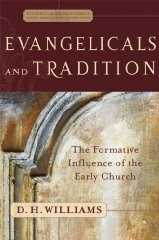 Evangelicals and Tradition
Evangelicals and Tradition
